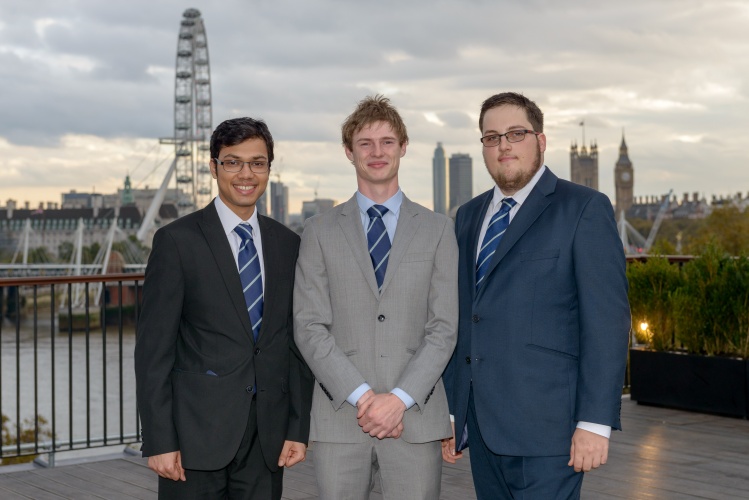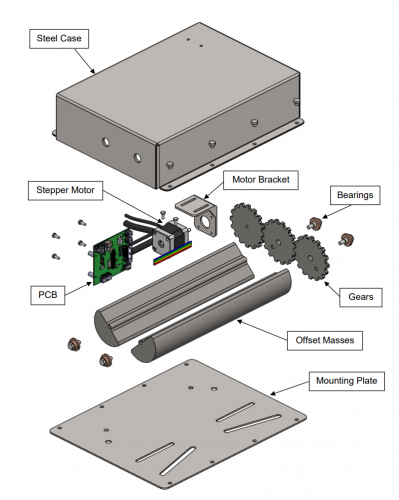A team from Pembroke College, Cambridge has won the IET Global Challenge to design a system for accurately weighing disaster relief vehicles.

Siddharth Gupta, 21; Gwilym Rowbottom, 22; Joshua de Gromoboy, 21
Open to young engineers aged 18-35, the competition was developed in partnership with international NGO, RedR. Teams had to develop a device that could measure the load in a Toyota Land Cruiser or similar vehicle, alerting the driver if the safe load was exceeded.
“NGOs often work off-road in challenging terrain and are reliant on vehicle fleets for day-to-day operations,” said Martin McCann, RedR UK chief executive. “The consequences of overloaded vehicles include higher fuel consumption, serious risk of damage to the vehicle, and increased danger of crash incidents. This can leave vehicles unavailable for weeks at a time, causing implications for the provision of relief services and for the safety of agency staff.”
Winning team Good Vibrations - consisting of three Cambridge undergrad engineers - took a slightly leftfield approach to the problem. Their Weigh2Go device analyses the vibrational response of the vehicle to a known input force, a principal not currently undertaken by any commercially available solution.

Two offset masses in a steel case are mounted to the chassis. By rotating the masses, the vehicle is forced to vibrate and the response is recorded using the on-board accelerometer. The user operates the device from a display unit mounted on the dashboard, which provides audible alerts in the case of overloading.
READ MORE STUDENT ENGINEERING NEWS HERE
“We researched existing solutions available on the market and after considering the advantages and disadvantages of each one in the context of the brief, decided on a vibration-based approach,” said 21-year-old team member Siddharth Gupta.
“One of the key disadvantages to any commercial solution was the need for (regular) recalibration by the manufacturer. We were keen to avoid this as it would be impractical in a humanitarian aid context and felt our solution needed to be easy to install and repair.”
A total of 40 teams from 12 countries took part in this year’s IET Global Challenge. The winners will receive a cash prize of £250 per person and will each be presented with a trophy and certificate at the IET Innovation Awards in London on 15 November 2017.





Nanogenerator consumes CO2 to generate electricity
Whoopee, they've solved how to keep a light on but not a lot else.